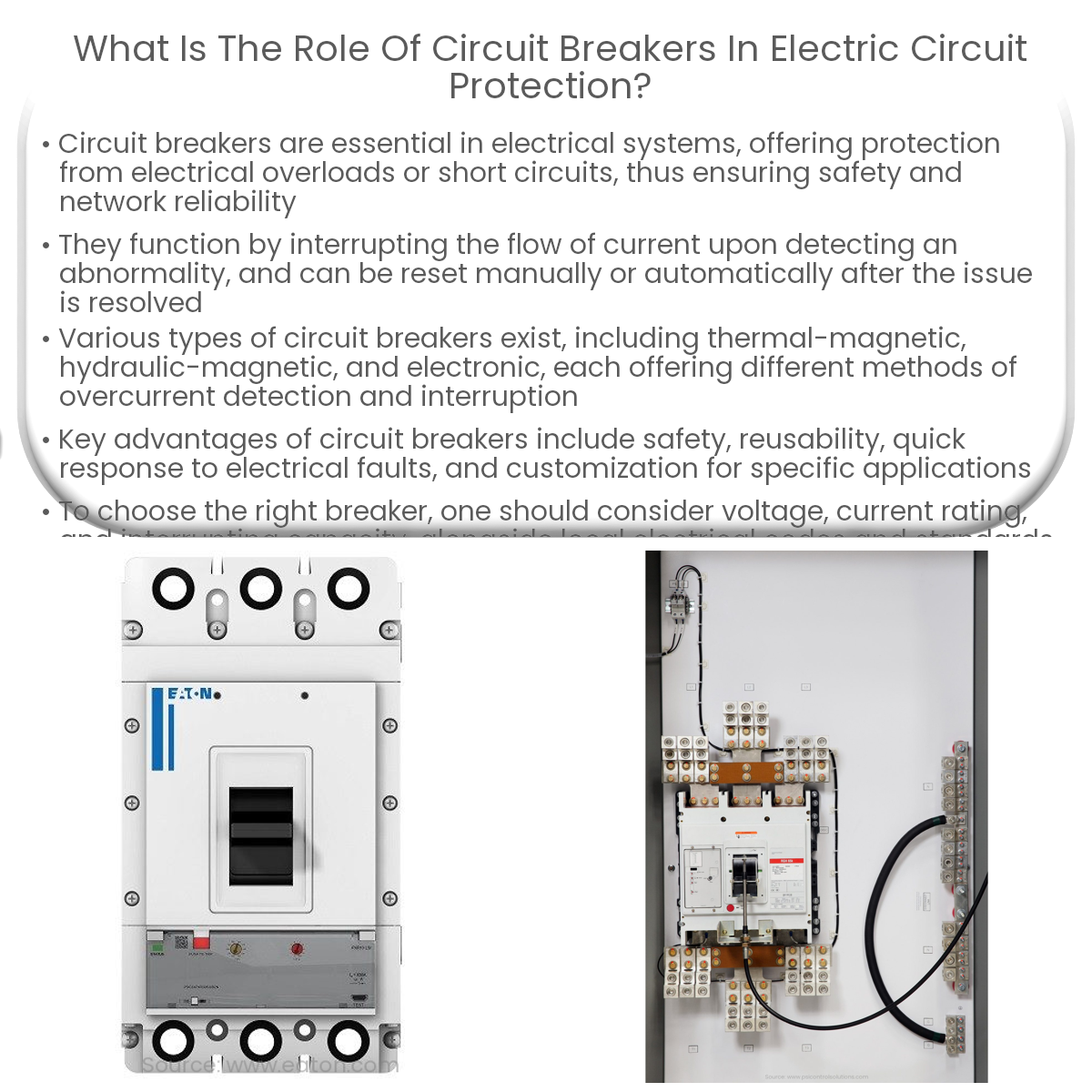Circuit breakers protect electrical systems by detecting and interrupting excessive current flow, preventing damage to devices and reducing fire risks.
The Role of Circuit Breakers in Electric Circuit Protection
Circuit breakers are crucial components in electrical systems, designed to protect equipment and individuals from potential hazards caused by electrical overloads or short circuits. They play a vital role in ensuring the safety and reliability of the electrical network, while preventing damage to electrical devices and reducing the risk of fires.
How Circuit Breakers Work
A circuit breaker is an automatic electrical switch that interrupts the flow of current when it detects an abnormality in the electrical circuit. The circuit breaker senses the excessive current and quickly disconnects the circuit, preventing any further damage. Once the issue is resolved, the circuit breaker can be manually or automatically reset to restore normal functioning.
Types of Circuit Breakers
- Thermal-Magnetic Circuit Breakers: These are the most common type of circuit breakers, using both thermal and magnetic properties to detect and interrupt excessive current flow.
- Hydraulic-Magnetic Circuit Breakers: These breakers rely on the magnetic force generated by the current flow, combined with a hydraulic delay, to provide accurate and reliable overcurrent protection.
- Electronic Circuit Breakers: These breakers use electronic sensors and microprocessors to monitor and control the electrical current, offering advanced features and precise protection.
Advantages of Circuit Breakers
- Safety: Circuit breakers protect electrical devices and wiring from damage caused by overloads or short circuits, reducing the risk of fires and potential harm to individuals.
- Resettable: Unlike fuses, which must be replaced after a single use, circuit breakers can be reset after they have been tripped, offering a more convenient and cost-effective solution.
- Quick Response: Circuit breakers react rapidly to abnormal electrical conditions, providing prompt protection and minimizing the impact of electrical faults on equipment and users.
- Customization: Circuit breakers can be tailored to specific applications, allowing for precise protection settings and better coordination with other protective devices.
Choosing the Right Circuit Breaker
To select the appropriate circuit breaker for a specific application, consider factors such as the voltage, current rating, and interrupting capacity. The breaker’s characteristics should match the requirements of the electrical system, ensuring optimal protection and seamless integration with other components. Additionally, it is essential to comply with local electrical codes and standards to ensure safety and proper installation.
In conclusion, circuit breakers are vital in maintaining the safety and integrity of electrical systems. Their ability to detect and interrupt excessive current flow, combined with their resettable nature, make them an indispensable component in modern electrical installations.


